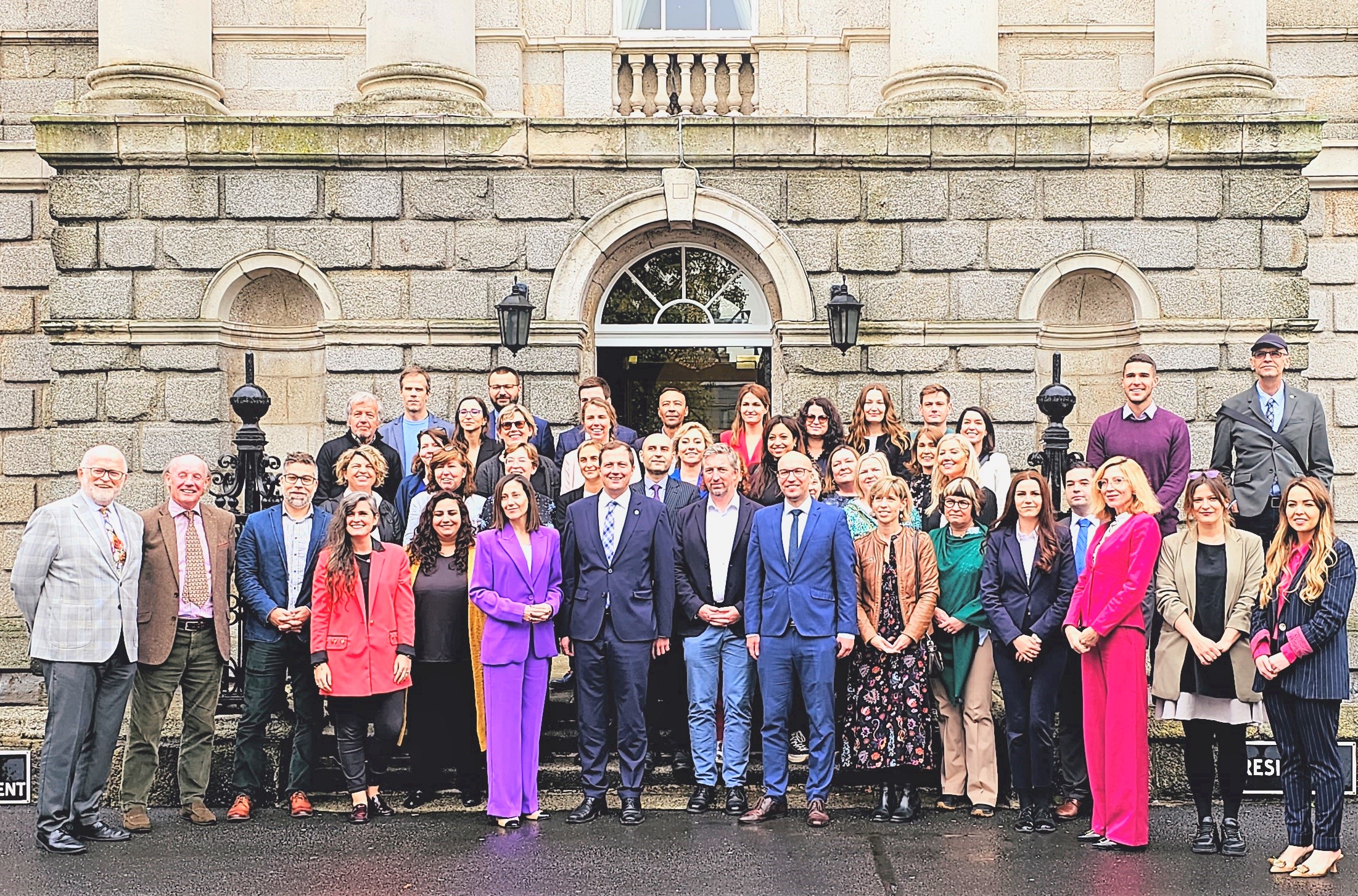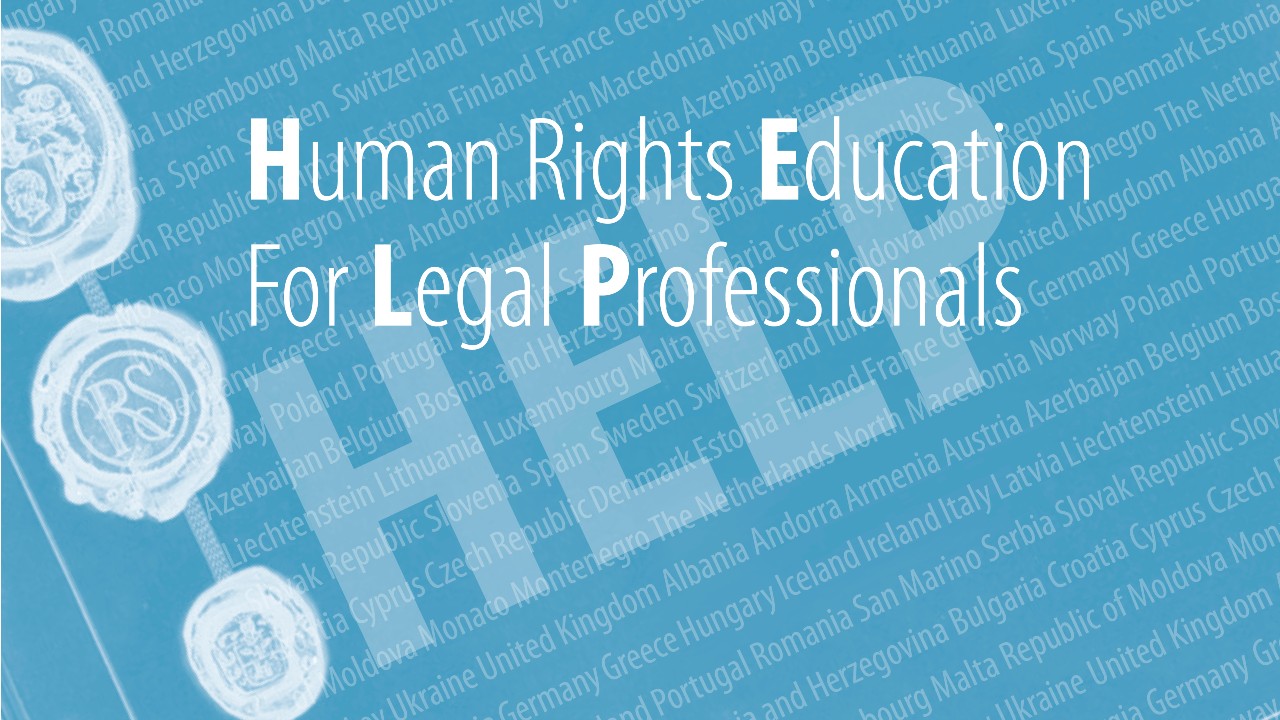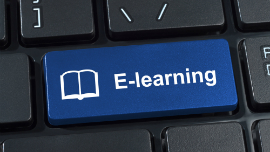On 19 October 2023, forty-two judges, prosecutors and lawyers from eighteen EU Member States attended the launch of the Council of Europe HELP course on Cybercrime and Electronic Evidence.
The event was held at the premises of the Law Society of Ireland in Dublin. It was organised by the Council of Europe, in collaboration with the Law Society of Ireland, in the framework of the EU-CoE Project “HELP in the EU III” (funded under the European Union’s Justice Programme (2021-2027)).
The launch began with introductory remarks from Ross McMahon, Chair of the EU and International Affairs Committee of the Law Society of Ireland and from Oana Gîrlescu, ‘HELP in the EU III’ Project Coordinator, Council of Europe. They welcomed the participants to Dublin and provided information about the two entities organising the event.
Several interventions relevant for the topic of the course followed. Eva Massa, one of the HELP tutors in charge with guiding the participants, presented the HELP course on Cybercrime and Electronic Evidence. She talked about how the course was created and by whom; she also provided a brief description of each of its modules. Jan Kralik, from the Cybercrime Unit of the Council of Europe, talked about the Budapest Convention (the only international Convention on the topic) and its additional Protocols. He also touched upon how cybercrime has developed in recent years, how it was impacted by the COVID-19 pandemic and how it is to be regarded when issues related to freedom of expression arise.
Niamh Hodnett, Solicitor and Irish Online Safety Commissioner, talked about the functioning of the Coimisiún na Meán (the Media Commission), a body established in Ireland earlier this year. She focused on the measures being taken in the field of online safety, mentioning the institution’s role in the Global Online Safety Regulators Network and their collaboration with the European Commission. She also talked about gathering of evidence and the need to remove harmful online content as soon as possible and the role of artificial intelligence in identifying and removing such content.
Following this intervention, Paul Johnstone, detective the Garda National Cyber Crime Bureau of Ireland, talked to the participants about fighting cybercrime from the police perspective. He touched upon practical implications related to evidence gathering and working with new technologies, as well as about collaborating with other legal professionals involved in such procedures at different stages; he also shared his opinion in relation to matters raised by the participants, such as the implication of having specialised judges and prosecutors working on cybercrime cases.
During the launch event, the participants also got acquainted with the HELP programme and its e-learning platform, which offers 49 courses on human rights. Furthermore, the groups met their HELP tutors, international experts Eva Massa and Jiri Novak. They talked to the participants about their background and interests and provided some insights into the matters to be approached during the course and the timeline to be followed.
The tutors will provide the participants with support and guidance during the following months. During the launch event, all participants have been registered on the dedicated course page and are now ready to start the tutored course. HELP certificates, issued by the Council of Europe and the Law Society of Ireland, will be awarded to those who successfully complete the course.
******************************************
The HELP course on Cybercrime and Electronic evidence acknowledges that cybercrime and other crimes involving electronic evidence affect the right to private life of hundreds of millions of individuals whose personal data are stolen; attack the dignity and the integrity of individuals; are a threat to the freedom of expression, public security but also democratic stability. The course introduces participants to the basic concepts related to cybercrime and electronic evidence. It makes an overview of the challenges in investigating cybercrime, as well as the difficulties in collecting and handling of electronic evidence. The Council of Europe Budapest Convention on Cybercrime and its Additional Protocols remain the key source throughout the whole course as it provides tools to deal with the above challenges for the protection of human rights and enforcement of legal order.
This HELP course is primarily addressed to criminal justice authorities, judges, prosecutors, lawyers and other legal practitioners. The course is also relevant for other categories of professionals and students, such as professionals working in the field of child protection, and anyone interested in improving their knowledge on cybercrime and electronic evidence.
The course was published in 2022. It was developed jointly by the Cybercrime Programme Office and the Human Rights Education for Legal Professionals (HELP) Programme of the Council of Europe, with support from the Cybercrime@Octopus and the follow-up Octopus projects, funded by voluntary contributions. Joint EU/CoE projects GLACY+ and CyberEAST contributed as well.
The course has a duration of 10 hours and is available in self-learning format in 13 languages. Upon completion users, can generate their electronic Statements of Accomplishment, in proof of their acquired knowledge and skills.





